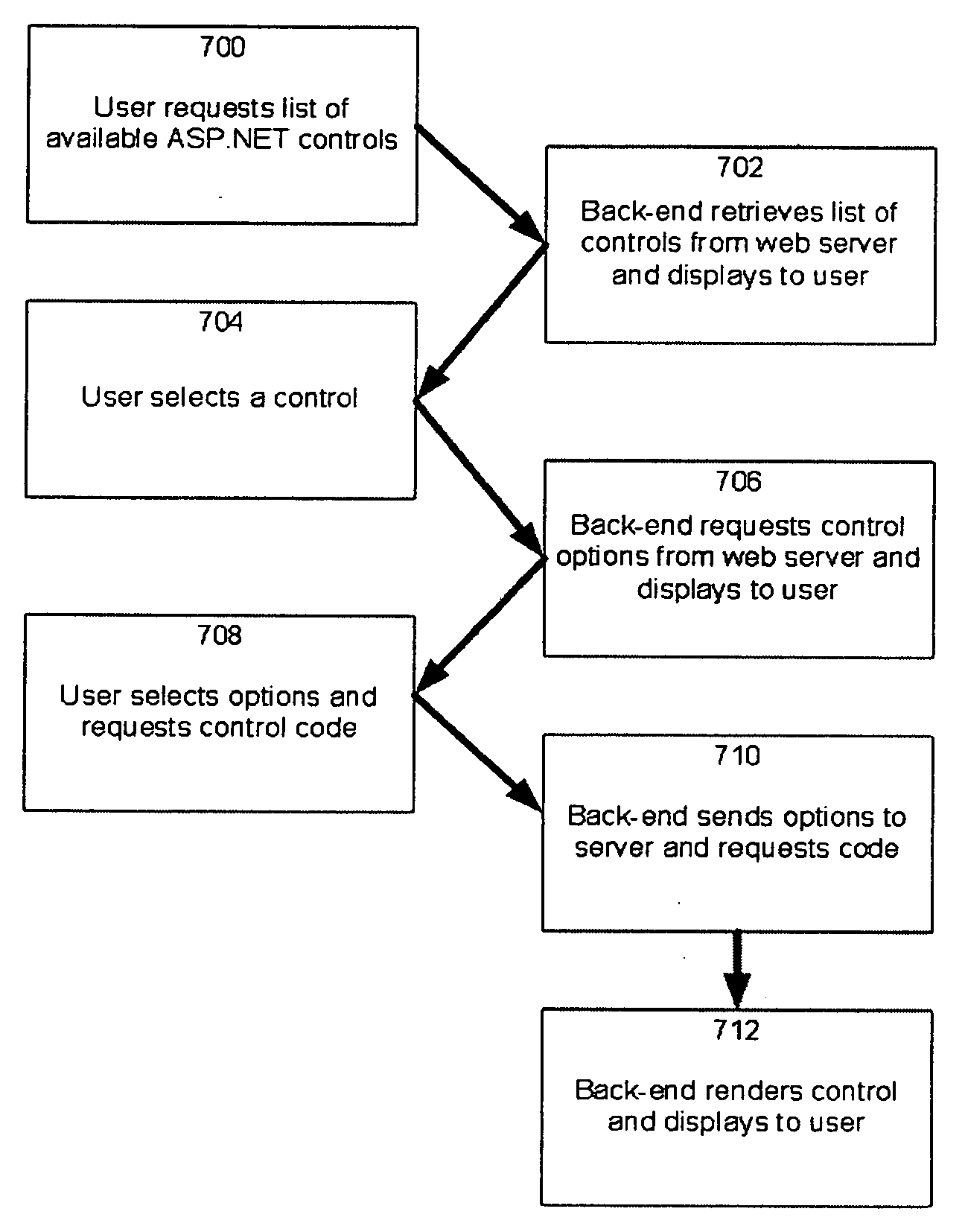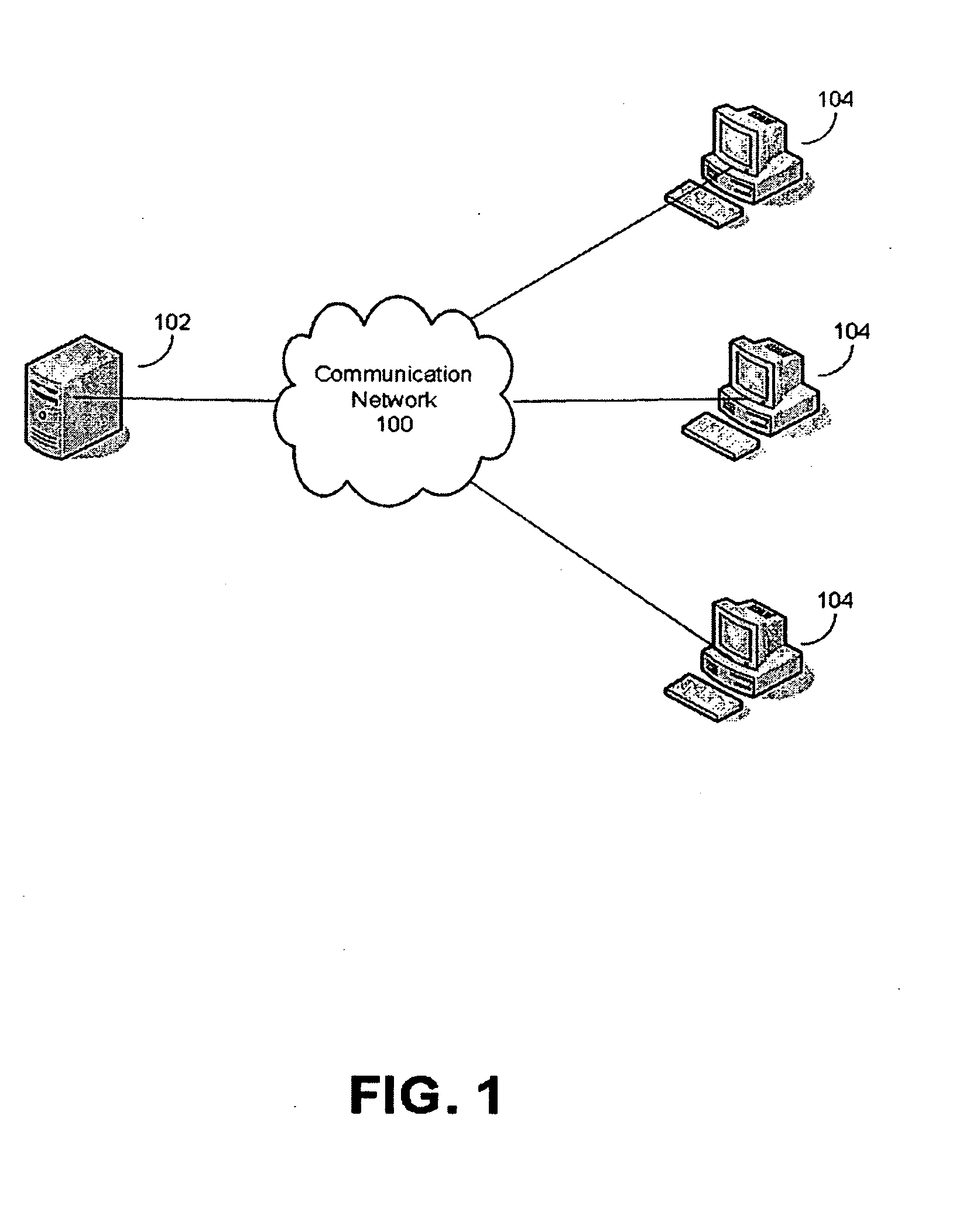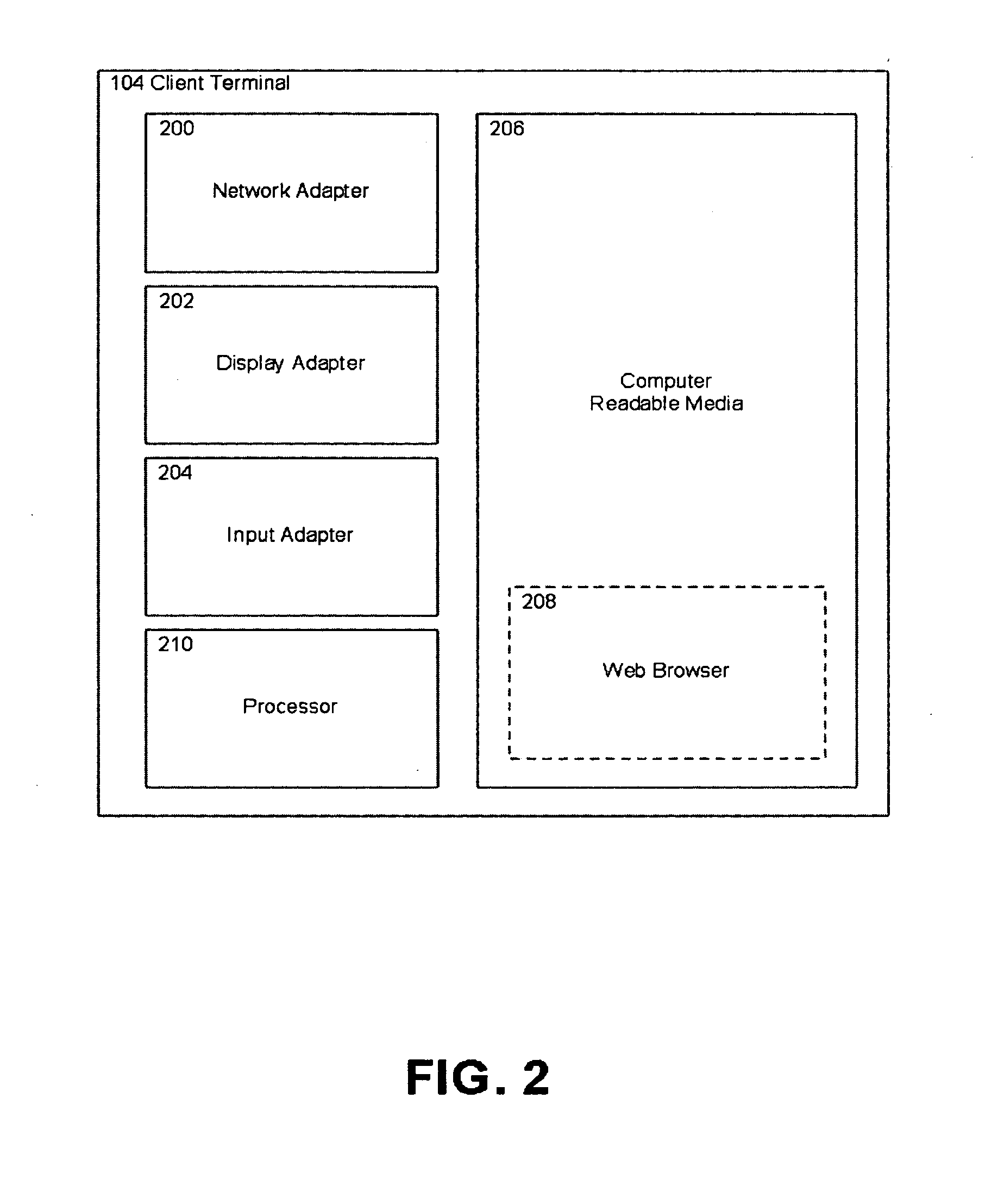Editing web pages via a web browser
a web browser and web page technology, applied in the field of web page editing via a web browser, can solve the problems of limited functionality of the tool compared to the client-based tool, the possibility of unauthorized access, and the limitation of the other data and facilities on the user's computer the browser can access
- Summary
- Abstract
- Description
- Claims
- Application Information
AI Technical Summary
Benefits of technology
Problems solved by technology
Method used
Image
Examples
Embodiment Construction
[0017]Applicants have appreciated that web page authoring tools that must be installed on a user's computer require a great deal of both time and expense in installing and maintaining the system. The software needs to be purchased and installed on computers, and updates and upgrades need to be managed. Function and control libraries need to be purchased, installed, and similarly managed. Indeed, the computer itself needs to be purchased and upgraded to keep pace with the growing demand of the software on hardware resources.
[0018]Web-based authoring tools that allow the editing of a web page overcome many of these disadvantages, but Applicants have appreciated that conventional implementations have limited functionality.
[0019]For example, conventional web-based authoring tools have not been able to offer some functionality available in web programming languages such as ASP.NET, available from the Microsoft Corporation of Redmond, Washington. This functionality includes features such ...
PUM
 Login to View More
Login to View More Abstract
Description
Claims
Application Information
 Login to View More
Login to View More - R&D
- Intellectual Property
- Life Sciences
- Materials
- Tech Scout
- Unparalleled Data Quality
- Higher Quality Content
- 60% Fewer Hallucinations
Browse by: Latest US Patents, China's latest patents, Technical Efficacy Thesaurus, Application Domain, Technology Topic, Popular Technical Reports.
© 2025 PatSnap. All rights reserved.Legal|Privacy policy|Modern Slavery Act Transparency Statement|Sitemap|About US| Contact US: help@patsnap.com



